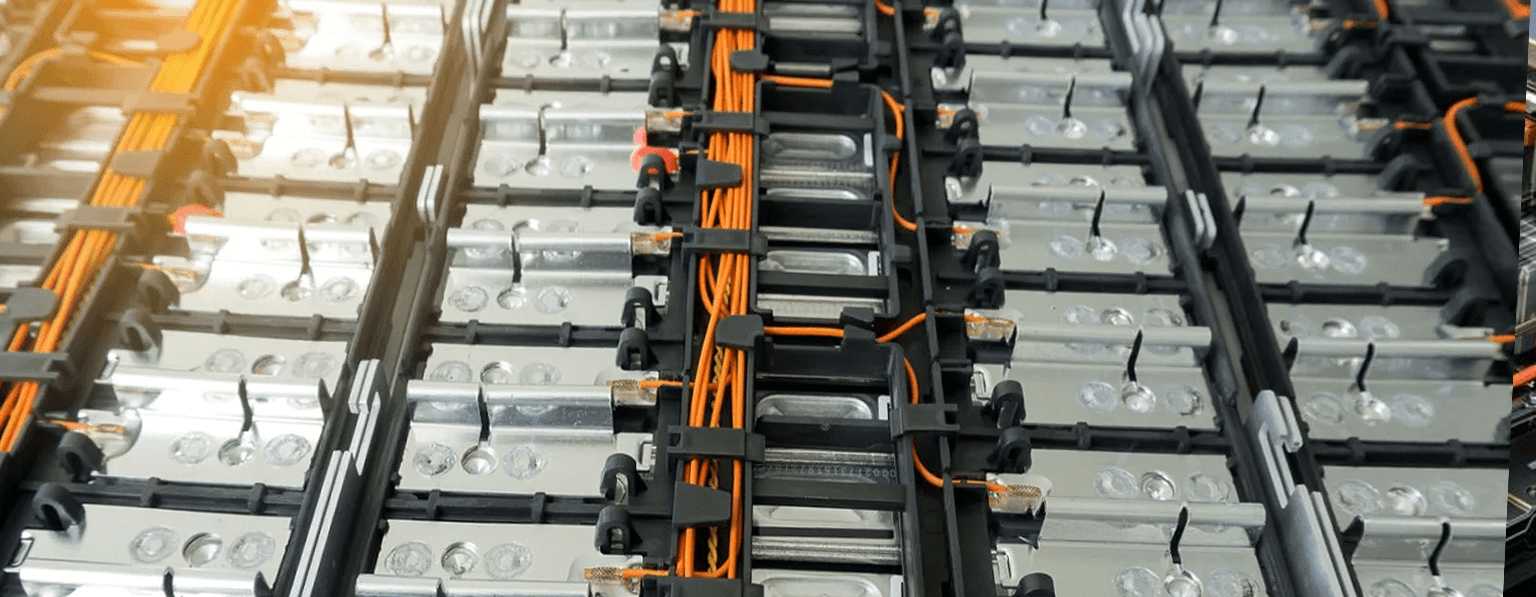As electric cars become more popular, people are starting to ask questions about who makes electric car batteries and where are they made?
According to a recent report, the top two electric car battery manufacturers are Contemporary Amperex Technology Co. and LG Energy Solution. Combined, these two companies make up 52% of the EV battery market. Additionally, out of the top ten of battery manufacturers, five are headquartered in China.
It should come as no surprise that, the battery production industry has been growing rapidly in the Asia-Pacific region due to the high demand for electric vehicles, and access to raw materials.
Without a doubt however, China has emerged as the dominate player in the region for electric car batteries.
To keep up with China’s EV battery dominance, American and German auto manufacturers will quickly need to ramp up their own technological and production capabilities. The harsh truth is, US and German automakers are currently at a disadvantage when it comes to developing new EV models. They have to rely on batteries from foreign companies, which can hamper both production timelines and innovation.
Because of this, American and German auto companies are exploring new ways to source critical battery components. They’re looking at options such as recycling batteries from older EVs, building their own battery plants, and even developing new types of batteries that don’t rely on rare earth minerals.
One new EV battery manufacturing technology that holds lots of promise is dry electrode coating.
U.S. and German Automakers Look to Localize EV Battery Development
Shifting production away from China and to North America or Europe could help auto manufacturers avoid potential tariffs, as well as future disruptions to the global supply chain. Not to mention, producing battery cells in-house rather than relying on suppliers would give them more control over quality and costs.
Despite the challenges, it’s clear that finding new ways to source electric car batteries has become a top priority for U.S. and German automakers.
So the question of “who makes electric car batteries” really comes down to a very small list of just ten companies – all from Asia. As electric cars become more popular, the need for quality batteries to power them grows as well. Let’s take a look at what companies are the top EV battery manufacturers.
EV Battery Manufacturers
It might come as a surprise that there are only ten companies in the entire world that make batteries for electric vehicles. Out of those ten, the top four companies make up more than 80% of the market!
However, none of these EV battery manufactures are headquartered in the United States. This may be surprising to some, considering the large amount of technological innovation that takes place in this country. Clearly as the demand for electric cars grows, so will the need for EV battery development in the U.S. and Europe.
The following companies make up 95% of all EV battery production, and their products can be found on every single electric vehicle out there today.
- Contemporary Amperex Technology Co. (CATL)
Market Share: 26%
Headquarters: China - LG Energy Solution
Market Share: 26%
Headquarters: South Korea - Panasonic
Market Share: 17%
Headquarters: Japan - Samsung SDI
Market Share: 7%
Headquarters: South Korea - BYD Co.
Market Share: 7%
Headquarters: China - SK Innovation
Market Share: 4%
Headquarters: South Korea - China Aviation Lithium Battery (CALB)
Market Share: 3%
Headquarters: China - Gotion High-Tech
Market Share: 2%
Headquarters: China - Automotive Energy Supply Corp. (AESC)
Market Share: 2%
Headquarters: Japan - Ruipu Energy Co. (REPT)
Market Share: 1%
Headquarters: China
While there are some familiar names on the list, there are also a few lesser-known companies that are quickly making a name for themselves in the EV battery industry.
Where Are Electric Car Batteries Made?
A look at the top EV battery manufacturers reveals that most of them are based in the Asia-Pacific region, with China being a particularly strong hub for electric car battery manufacturing.
In fact, China is the top EV battery producer in the world with 558 gigawatt hours of EV battery capacity annually. For reference, a gigawatt hour is 1 million kilowatt hours. Putting that into perspective, the battery of a Tesla Model 3 standard range has an estimated total capacity of 50 kilowatt hours. The amount of battery capacity China is producing could supply almost 11.2 million Tesla Model 3 EV’s!
China also dominates other parts of the battery supply chain, such as mining and refining battery minerals like lithium and graphite.
Chances are at least one crucial component within an EV came from China. However, automakers want that to change and for good reason. They don’t want to remain dependent on China for these critical parts.
In fact, the Biden administration is putting over three billion dollars into the EV battery supply chain. This investment will likely create new job opportunities and incentives for Americans to switch to electric cars. It’s a big bet on the future of electric cars.
How Does The US Stack Up Against Asia When it Comes to Battery Production?
The United States makes 44 gigawatt hours of EV battery capacity. This is a far from China’s output of 558 gigawatt hours of energy production. In fact, the Tesla Giga Nevada (or Gigafactory 1) is outputting a whopping 37 gigawatt hours of annual capacity. This makes it the single largest battery factory in the entire world.
But the fact still remains, the United States trails China in total gigawatt hour output. But for how long will this be the case? The answer to this question could have large implications for the US economy. If the US can close the gap, they may be able to establish themselves as a global leader in electric car battery production.
Investing in EV Battery Production
Recently, automakers have been investing billions in EV battery factories. Hyundai is spending 5.5 billion on a battery and EV vehicle plant in Georgia, and is expected to open during the first half of 2025. It’s estimated this new factory will have an annual production capacity of 300,000 vehicles, and will create roughly 8,000 new jobs.
Ford announced plans to invest $11.4 billion to build Blue Oval City and Blue Oval SK Battery Park in Tennessee and Kentucky. General Motors announced it would spend $4 billion to expand its Orion Assembly Plant in Michigan to build electric vehicles. Additionally, GM is spending $2.6 billion to build a battery manufacturing facility also in Michigan.
Stellantis and Samsung SDI announced they would invest more than $2.5 billion and create 1,400 jobs at a planned EV battery plant in Kokomo, Indiana.
EV Battery Production Process
The production of lithium-ion batteries has increased at an alarming rate over the past decade. As a result, innovative techniques are being developed to improve the efficiency and eco-friendlyness of mining, extraction, and processing of the raw materials necessary for EV batteries.
However, once the raw materials have been gathered, the EV battery production process includes:
- Production of lithium-ion batteries/electrodes
- Cell manufacturing
- Assembly of multiple cells into a battery pack
While electric cars have gained a lot of popularity recently as an alternative to gasoline vehicles, the production of the lithium-ion batteries used for EV’s is not a perfectly “green” process.
In fact, the process of extracting the raw materials, such as lithium and cobalt, requires large quantities of energy and water. The reality is, mining for lithium is a dirty business and any type of resource extraction is harmful to the planet.
Is Mining for Lithium Batteries Bad for the Environment?
It’s a complicated question with no easy answer. Lithium is an essential component in many of today’s most popular gadgets, from cell phones to laptops. And with the rise in electric cars, demand for lithium is only going to increase.
But where does this vital element come from?
To date, Chile has the world’s largest known lithium reserves with a reported 8 million tons. This puts the South American country far ahead of Australia (2.7 million tons), Argentina (2 million tons) and China (1 million tons). In fact, the majority of the world’s lithium is mined in Chile, Bolivia, and Argentina.
So, is mining for lithium batteries bad for the environment? The hard truth is that lithium extraction harms the soil and causes air contamination.
Additionally, residents who live near lithium mines have reportedly been claiming that the local streams have changed. They say that the water used to be crystal clear, but now it’s become murky and filled with sediment.
These streams are used by not only the residents, but also the livestock and for crop irrigation. As such, many experts warn the process of extracting lithium can be environmentally devastating.
The truth is, any type of material extraction from the Earth is harmful. Removing raw materials has shown an increase in soil degradation, water shortages, biodiversity loss, damage to ecosystem functions and an increase in global warming.
The hope is, new and innovative mining techniques will be developed that will be much cleaner and more sustainable.
Environmental benefits are often cited as a primary reason for moving away from fossil fuels and toward electric power. However, the ecological benefits from electric power aren’t as clear as one might think.
Many EV battery manufacturers as well as politicians believe that the dirty mining process is worth the cost for lower emissions. They argue that this is a necessary step to take in order to protect the environment. However, others contend that there are cleaner and more efficient ways to achieve the same results.
Rapid EV Growth May Drive Material Shortages
EV battery production is primed to surge to new highs over the next four years. Many have even described this price surge as a coming tornado that the battery industry is just not ready for. This hike in battery costs is being estimated to drive up the price of electric cars by an additional 1,500 to 3,000 dollars per vehicle sold.
Many experts have warned that a raw material shortage is looming on the horizon. As a result, companies who make electric car batteries will need to prepare for these potentially material shortages. In fact, this could lead to a shortage of EV batteries by 2024, slowing their availability and affecting electric car adoption.
Final Thoughts: Who Makes Electric Car Batteries, and Where Are They Made
Governments around the world are pushing for combustion engine bans by 2035. Many people believe that this is necessary in order to help reduce emissions and fight climate change. However, there are also many obstacles to this plan, including the cost of transitioning to electric vehicles and the infrastructure required to support them. Not to mention potential raw material shortages and the ecological impact of mining these materials.
What has become very clear is that battery production needs to ramp up in the United States in order to become less dependent on China. This is necessary in order to secure the nation’s supply of critical materials and reduce its reliance on a single country.
What concerns about EV battery manufacturing do you have? Feel free to comment below.

Managing Editor
Christopher is an automotive technical writer. When he’s not at the local autocross event, he can often be found working on one of his cars. Specializes in automotive class action law, industry trends, and automotive maintenance. Email me direct, or learn more about us

